As it's Easter, I thought it was time to once again honor the US military's chaplains, charged with the spiritual health of the troops. Last year, I told the story of the Four Chaplains who gave up their lives on the torpedoed troopship Dorchester. This year, we'll look at the first Chaplain to win the Medal of Honor in the 20th century, Father Joseph T. O'Callahan of the USS Franklin.
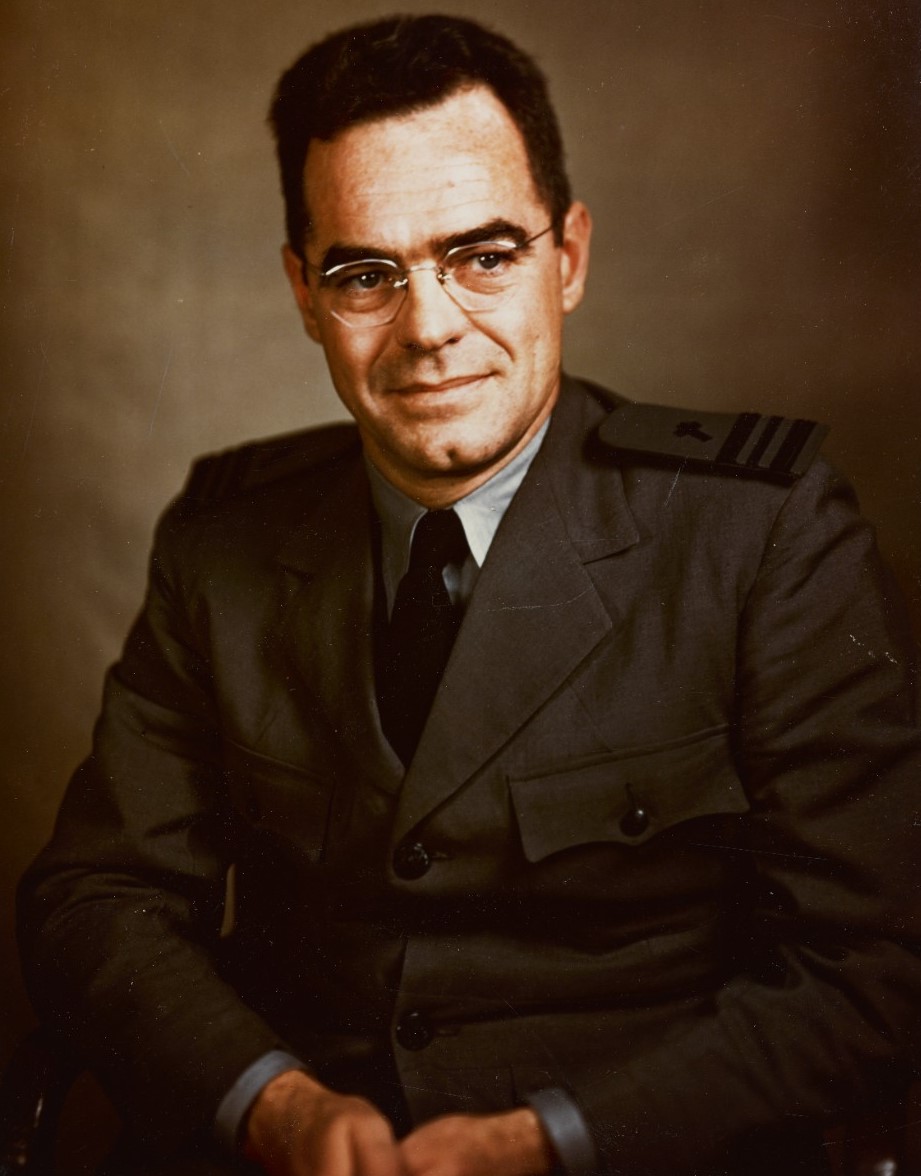
Joseph O'Callahan
O'Callahan was a Jesuit who taught math at Holy Cross before the war, and became the first of his order to join the Navy's chaplain corps when he requested an appointment in late 1940. His first assignment was to the Naval Air Station at Pensacola, where he quickly gained a reputation for hard work and care among not only Catholics but all he came in contact with. Finally, after 18 months in Florida, he was assigned to the carrier Ranger, just in time for her to be sent to support Operation Torch, the Allied landings in North Africa. O'Callahan provided a narration of the action to the crewman on duty throughout the ship over the 1MC, then went topside to help haul the body of a gunner killed by AA fire out of the Dauntless and provide him a proper burial at sea.
O'Callahan stayed with Ranger until mid-1944, as she served first with the British Home Fleet and then as a training carrier. After a few months stateside, he was sent to join the newer Essex class carrier Franklin, reporting aboard on March 2nd, 1945. He would have little time to get to know his new charges before they entered combat, as TF 58 was headed straight for a series of raids on the Japanese mainland.
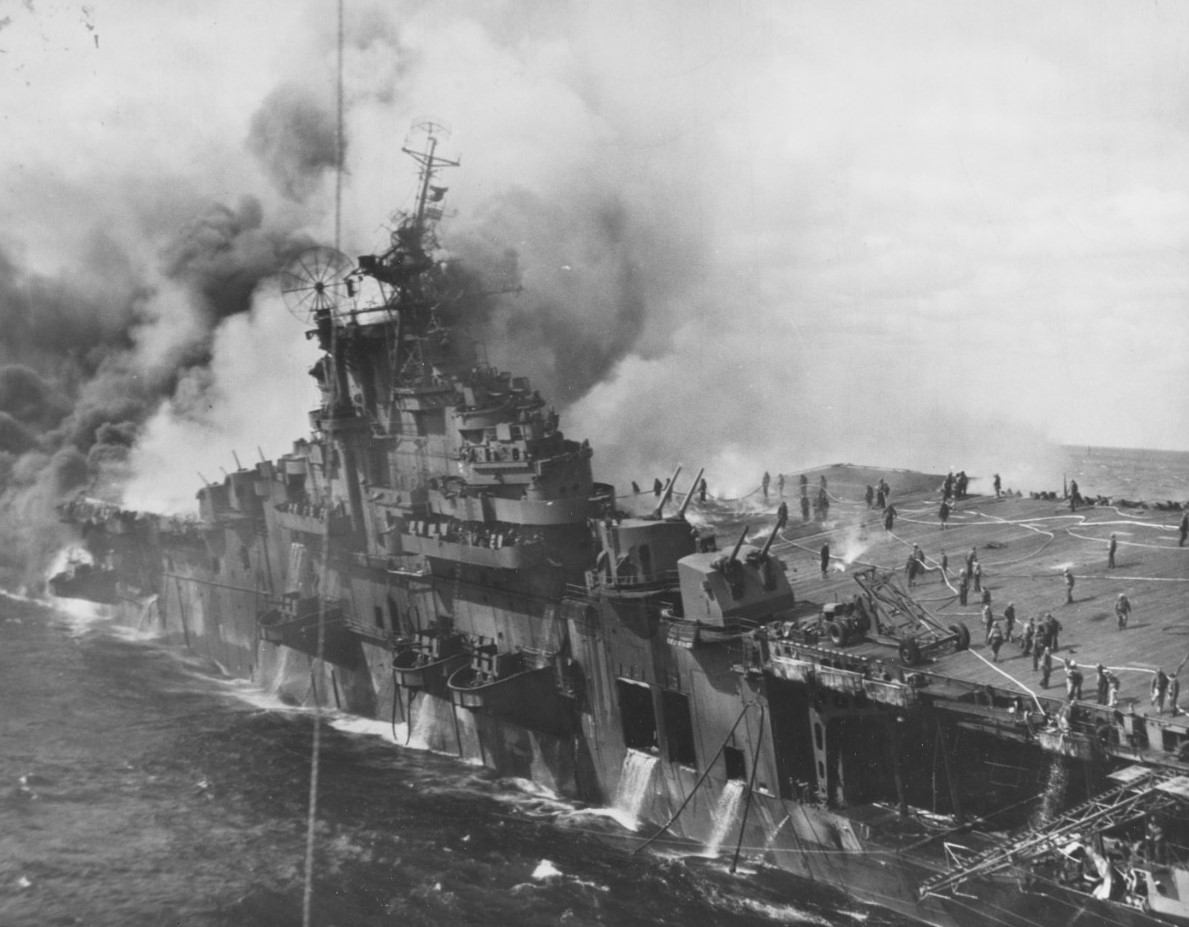
Franklin afire
On March 19th, Franklin, lying only 50 miles off the coast of Japan as part of a series of strikes on Kure, was attacked by a Japanese dive bomber. Somehow slipping through the American radar coverage, it dropped out of the clouds too close for the ship's gunners to respond, and dropped two bombs on the carrier. Both hit and penetrated to the hangar deck, instantly setting off explosions among the armed and fueled planes parked there. Of the five hundred men in "Big Ben"'s hangar, only two survived. The forward elevator was blown off its mountings, and aircraft on the flight deck were thrown about by the violence of the explosion.
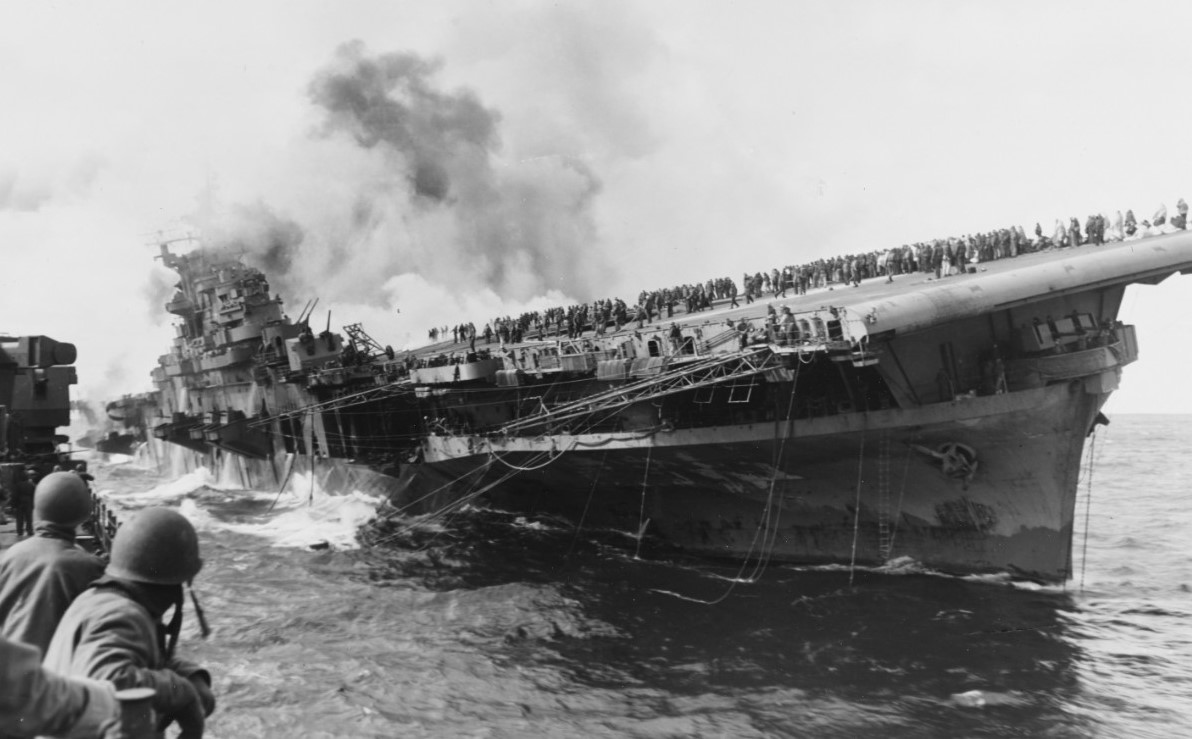
Over the next six hours, the men of the Franklin fought amid an inferno matched by few other ships throughout the course of the war. The initial fires were compounded by exploding ordnance and burning aviation gasoline, and many men were forced over the side and into the water. The carrier's escorts quickly came to her aid, with Captain Harold Fitz of the cruiser Santa Fe sending his ship charging at the Franklin, then turning aside at the last second, bumping into the carrier's side and locking the two ships together. This amazing piece of shiphandling allowed casualties to be passed directly from the carrier's hangar deck to the main deck of the cruiser, while supplies flowed in the opposite direction for more than two hours, regardless of the danger to Santa Fe.
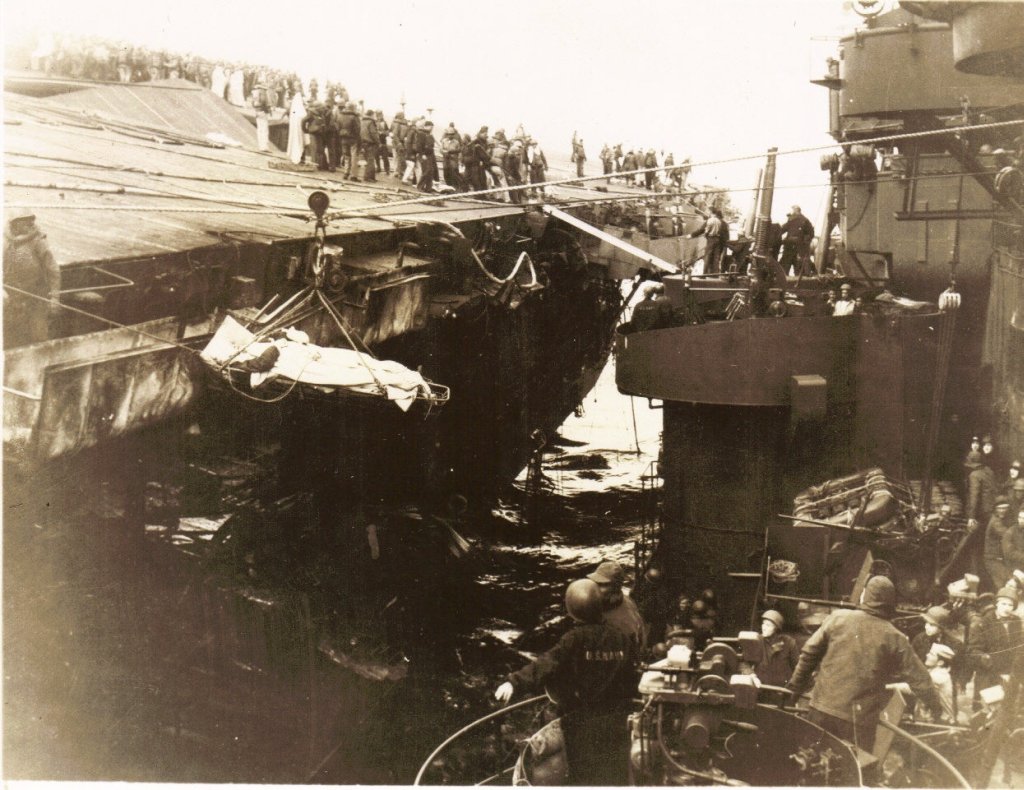
Casualties are transferred from Franklin to Santa Fe
In the midst of the chaos was "Father Joe", recognizable by the white cross on his helmet. He spent much of his time ministering to the wounded and dying, administering Last Rites and absolution to the survivors. He fought not only for the souls of the men aboard, but also for the ship itself, rounding up sailors to man the hoses and serving as a messenger for the Captain. He organized men to go below and put Franklin's boilers online, getting the ship moving away from the Japanese coast, and even located bombs that needed to be dropped over the side. When fire threatened the ready magazine for the forward 5"/38 gun, O'Callahan led a party into the magazine despite his claustrophobia, and took his place in the chain of men passing the shells over the side.
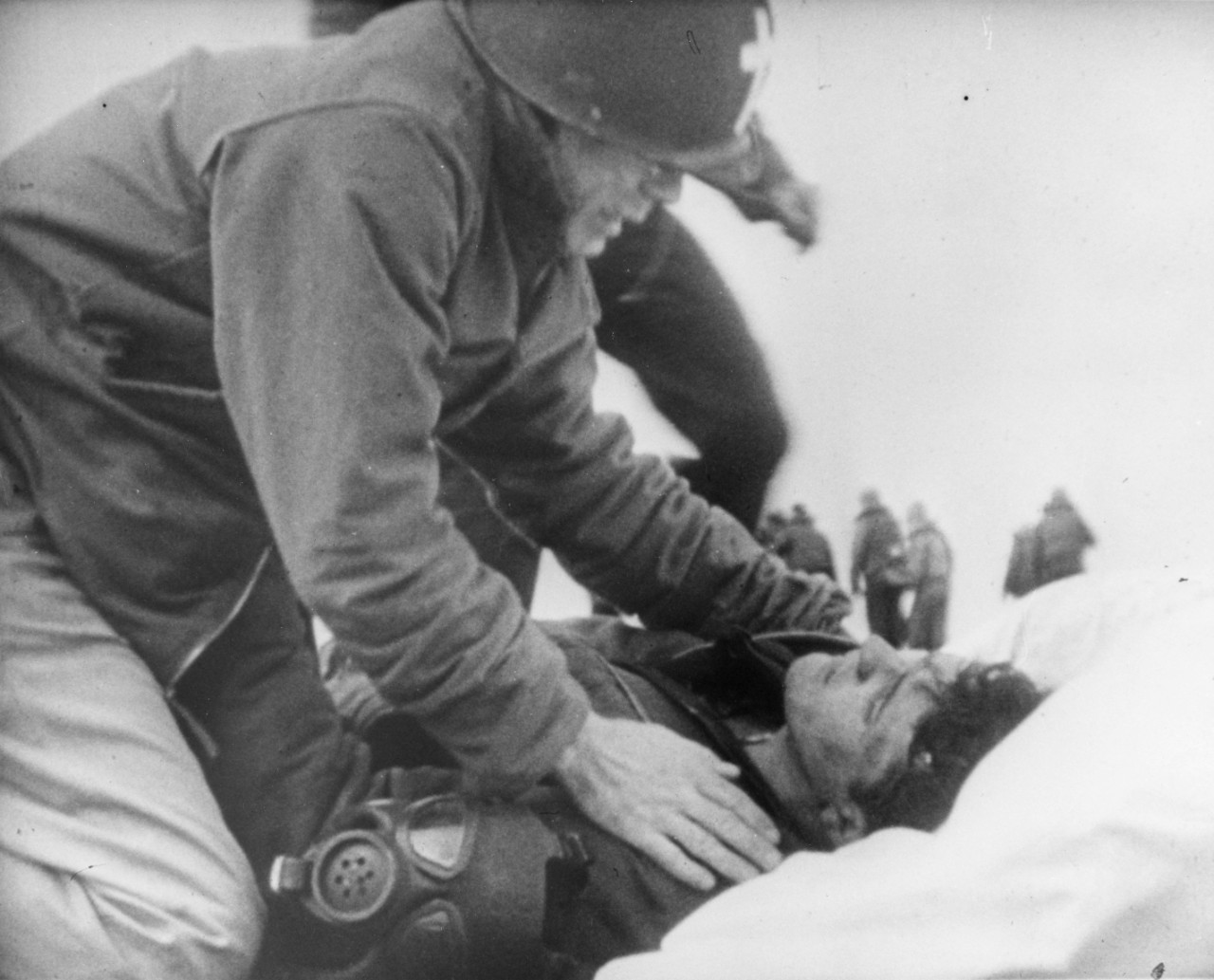
O'Callahan ministering to a sailor aboard Franklin
As the fires were beaten back, the crew found both unexploded bombs and the bodies of their crewmates killed in the inferno. Father Joe dealt with both, directing hose teams and moving bodies to clear the way for the damage control parties. A Japanese fighter on a strafing run scattered the firefighters, and O'Callahan marshaled them again. The fires finally died, and cruiser Pittsburgh took Franklin in tow, while the crew got their boilers back online, and soon had the ship making 14 kts for Ulithi. The Japanese never made a determined effort to follow up their attack on Franklin, and she eventually made it to Hawaii under her own steam. On the way back, O'Callahan supervised removal of the bodies, and conducted numerous funerals, burying many of the 807 killed at sea.
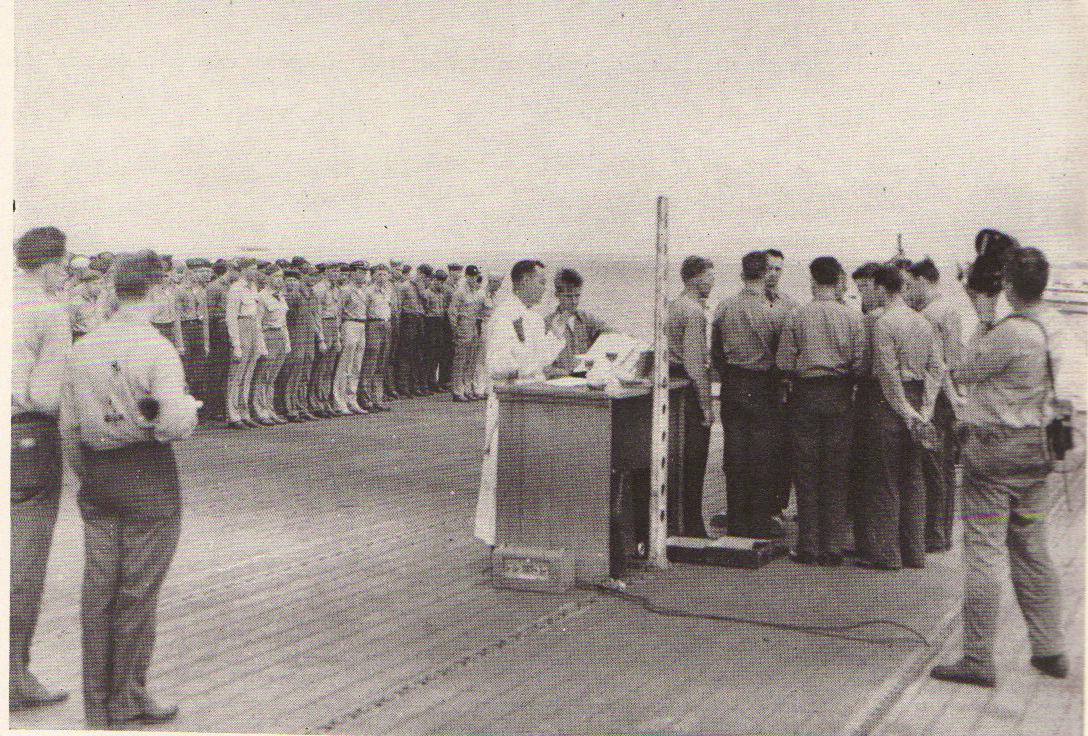
Father Joe conducts services on the flight deck after the attack
Upon the release of the story, O'Callahan was an instant hero, touring the country while Franklin went to Brooklyn Navy Yard. He was recommended for the Medal of Honor, but officials downgraded it to the Navy Cross. This was met with protests from both the Massachusetts congressional delegation and Jesuit officials, whose efforts eventually resulted in the award of the Medal of Honor in early 1946, the first Navy chaplain so honored.
After leaving the Navy, O'Callahan returned to the mathematics department at Holy Cross, although he suffered badly from what we would recognize today as PTSD. His health also began to deteriorate, taking a major turn for the worse in 1949, when he suffered a stroke. He spent the next decade and a half in increasing isolation at Holy Cross, until he passed away on March 16th, 1964, at the age of 58.
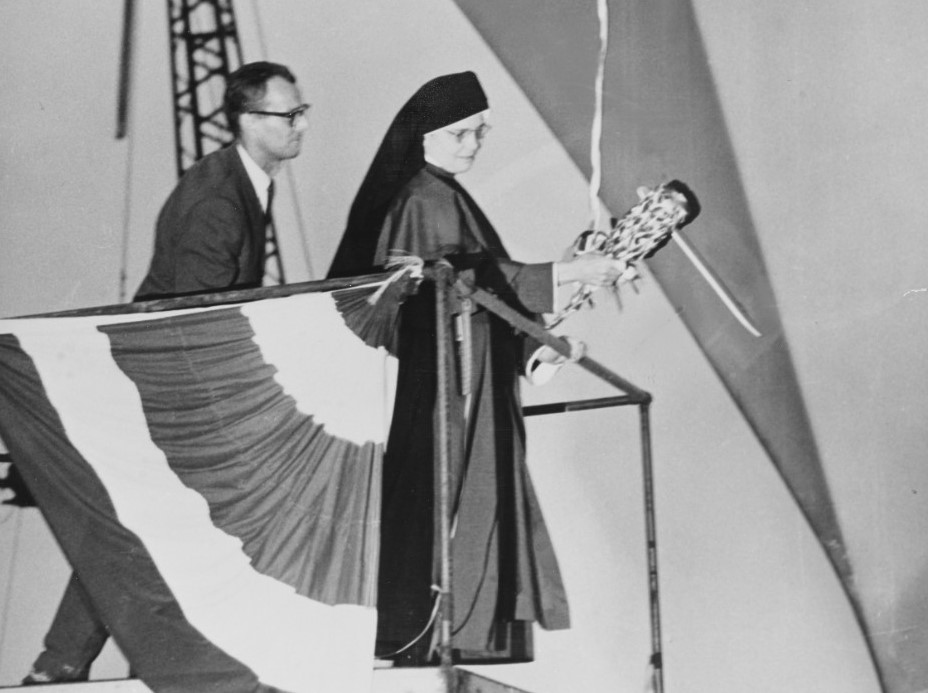
Rosie Marie christening O'Callahan
"Father Joe" was remembered by all who knew him, both for his humanity and his courage during the battle to save Franklin. His legacy was commemorated by the frigate O'Callahan, named after him the year after his death. She was sponsored by his sister Rose Marie, the first nun to sponsor a US navy warship.

Comments
...I did not know Chaplain O'Callahan was aboard Ranger at North Africa - my uncle Jack almost certainly took Mass from him.
Mike
Just caught up with this one. I am very glad that a Massachusetts delegation and Jesuit officials pushed hard to award the MoH. While a Navy Cross is certainly not anything to sniff at, O'Callaghan's actions reflect a truly extraordinary dedication to duty and to his shipmates.
Frankly I was surprised that, unless there was a lack of evidence at the time, why reviewing officials would have downgraded the initial recommendation. A real-deal inspirational hero. Sorry to hear his post-war years were plagued by PTSD and other difficulties.